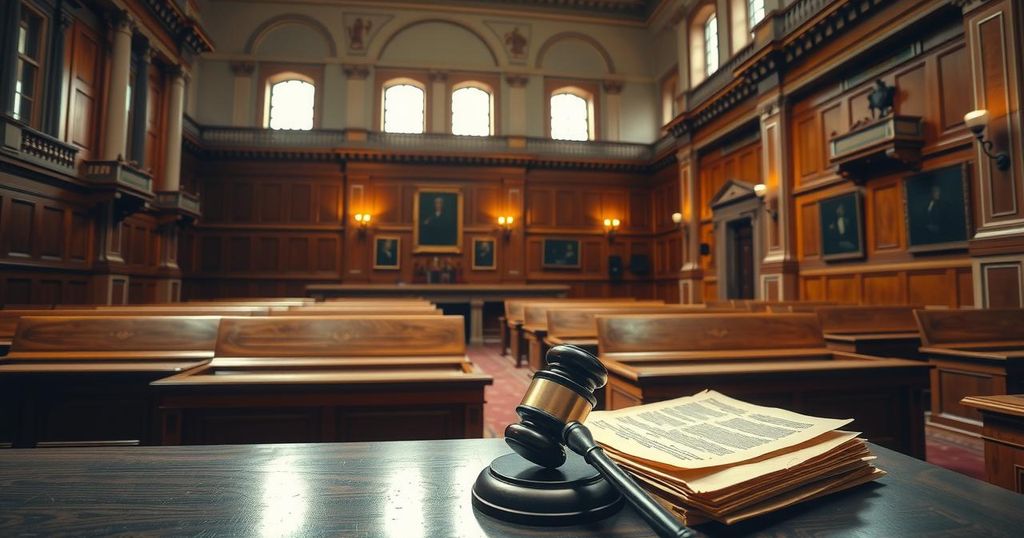Climate change
CENTER FOR INTERNATIONAL ENVIRONMENTAL LAW, CLIMATE CHANGE, COMMUNICATIONS CAMPAIGN SPECIALIST, ENVIROMENTAL_ISSUES, ENVIRONMENT, EUROPE, GERMANY, GLOBAL WARMING, GREENHOUSE GAS EMISSIONS, HAMM, HUARAZ, NIKKI REISCH, PERU, ROSSELLA RECUPERO, RWE, SAUL LUCIANO LLIUYA, SAÚL LUCIANO LLIUYA, SEBASTIEN DUYCK, SOUTH AMERICA, WHATSAPP
Jamal Walker
0 Comments
Historic Court Hearings Confirm Accountability for Climate Polluters
The Higher Regional Court of Hamm is reviewing a climate lawsuit by Peruvian farmer Saúl Luciano Lliuya against RWE. The case challenges corporate accountability for climate harm and is deemed a critical moment in climate litigation. Expectations for a ruling by April 14, 2025, signify a wave of potential legal responsibility for polluters, impacting the fossil fuel industry worldwide.
The Higher Regional Court of Hamm is currently reviewing a significant climate case involving Peruvian farmer and mountain guide, Saúl Luciano Lliuya, who has brought a lawsuit against the German energy company RWE. A ruling from the court is anticipated on April 14, 2025. This case emphasizes the “polluter pays principle,” indicating a potential shift in the accountability of fossil fuel companies for climate-related damages.
Sebastien Duyck, Senior Attorney at the Center for International Environmental Law (CIEL), underscored the transformative nature of this hearing. He stated that it indicates a pivotal moment in climate litigation, where a major fossil fuel company could be legally challenged for its environmental impact. This represents a significant move towards ending the industry’s long-standing immunity from accountability.
Nikki Reisch, CIEL’s Climate & Energy Program Director, remarked that these hearings signal hope and justice for affected communities globally. She highlighted that the outcome of this case reinforces the reality that significant contributions to climate harm will have legal ramifications. Furthermore, she cautioned investors in the fossil fuel sector to reconsider their funding strategies in light of this growing trend in climate litigation.
Since 2015, Lliuya has argued that RWE, as the largest electricity producer in Germany, is partially responsible for the danger posed by glacial melt and potential flooding in Huaraz, Peru, due to its contributions to climate change. The plaintiff is seeking financial compensation for flood protection measures amounting to $21,000, which are essential for adapting to the impacts of climate change. This case is already historic, as a prior ruling in 2017 by the Higher Regional Court established that corporations could indeed be held liable for climate damages.
The court proceeded with evidentiary hearings on March 17 and 19, with a decision expected shortly thereafter. This case serves as a potential precedent for future litigation against corporations regarding their environmental responsibilities.
The hearings taking place in the Higher Regional Court of Hamm represent a crucial step in the fight against climate change accountability. As experts highlight the significance of this case, it sets the stage for future litigation against fossil fuel companies. With a ruling anticipated in the coming weeks, the implications of this decision may resonate beyond Germany, inspiring similar actions globally. It is evident that fossil fuel corporations must prepare for legal accountability in the face of their contributions to climate-related damages.
Original Source: www.ciel.org




Post Comment